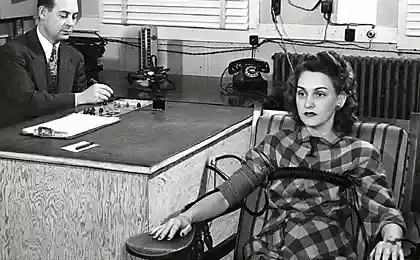339
How to Read Your Mind: 9 Micromimics Signals That Reveal Secrets

Language length of 1/25 seconds: how to crack the code of the subconscious
When Paul Ekman proved the universality of micromimics in 1967, the CIA immediately allocated $3 million for his research. Today, these techniques are available to everyone: learn to read emotions like FBI agents and characters in the TV series “Lie Me.”
The Neurobiology of the Moment: Why the Brain Can't Hide the Truth
According to Ekman’s research, 85% of people do not control 43 facial muscles. Leaks occur in 0.2–0.5 seconds, faster than consciousness can intervene. Modern AI algorithms (such as Affectiva) recognize them with 98% accuracy, but you can repeat this without the technique.

9 key signals: from the eyebrows to the tip of the nose
- Morgana century 8 times/min = calm, 20+ = stress
- Horizontal folds on the forehead - false surprise
- Smile asymmetry The left half of the face is sincere.
- Nostril shaking - repressed anger
- Upper eyelid tense - hidden disgust
- Tongue touches the palate - internal disagreement
- "Glass" eyes - artificial empathy
- Veins on the temples - fear of exposure
- Lip microcompression 0.3 sec = word restraint
“Lying is jumping into a pool without water. The body always prepares itself for the “fall” – Paul Ekman, The Psychology of Lies
Interrogation technique without words: 4 rules from FBI practice
- Rule of the Three Ps – Pause, Repeat, Provocation
- Ask questions with your back to the light - the pupil of the interlocutor will expand
- Use the “mirror effect” – repeat the pose with a delay of 5-7 seconds
- Watch for 'emotional lag' - delay between word and gesture
How to distinguish real shame from fake shame (FACS):
- Real: Looking down + lowered shoulders + hand at the mouth
- Fake: Covered eyelids + head tilt + controlled smile

Mistakes of beginners: why you can not trust stereotypes
A 2023 study found that 73% of people confuse “emotional suppression” with lying. Remember:
- Running glance is more often anxiety than deception
- Crossed arms are protection from cold, not revelation
- Long eye contact is manipulation, not sincerity
Glossary
FACS (Facial Action Coding System)
Facial muscle coding system developed by Ekman to analyze microexpressions.
Basic emotions
7 universal emotions according to Ekman: joy, sadness, anger, fear, surprise, disgust, contempt.
Emotional lag
The delay between the emotion experienced and its conscious display.
The Antisocial Personality in Scientology: Hidden Mechanisms of Destruction
How to eat sweets and lose weight: the secret of Japanese centenarians























